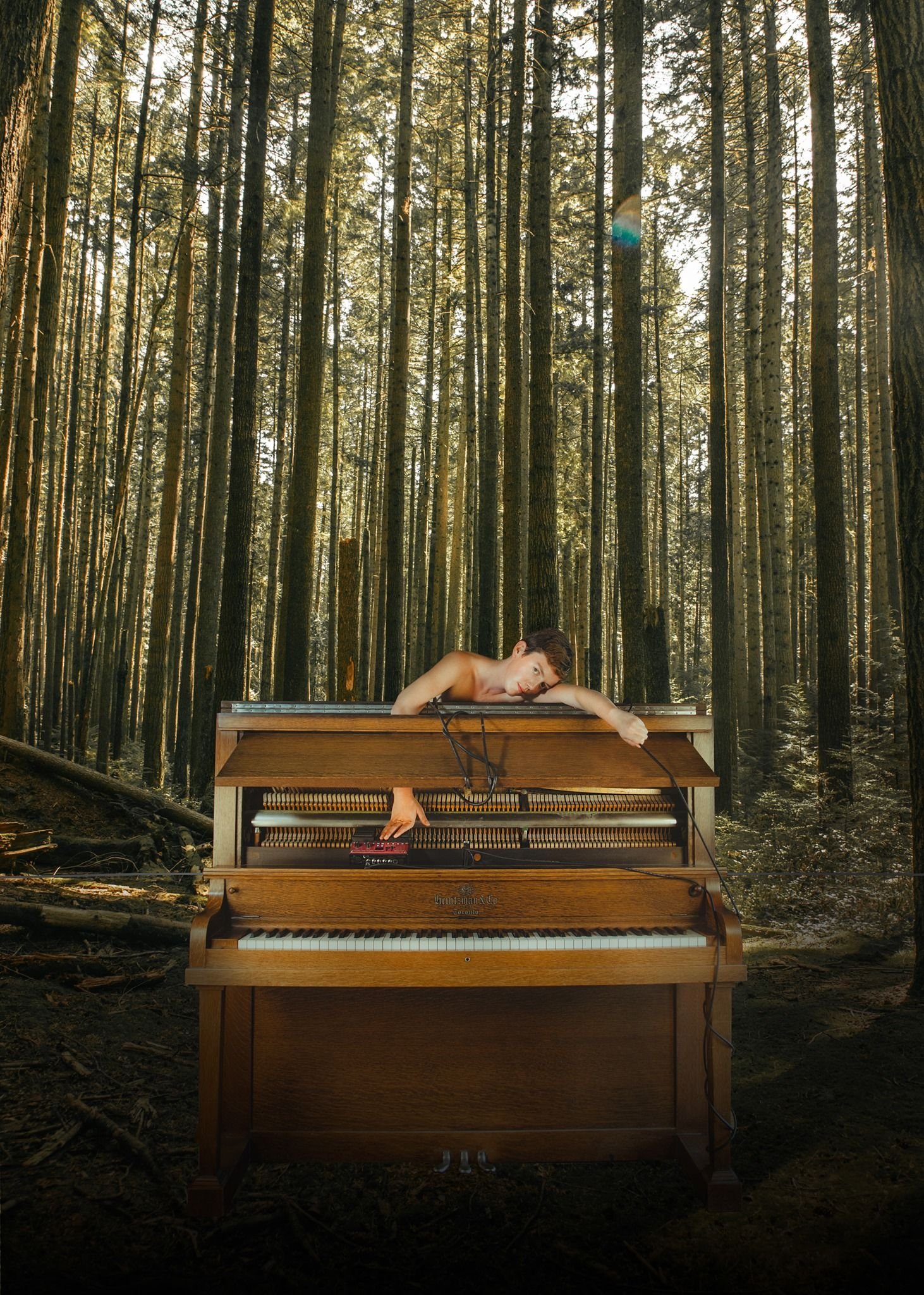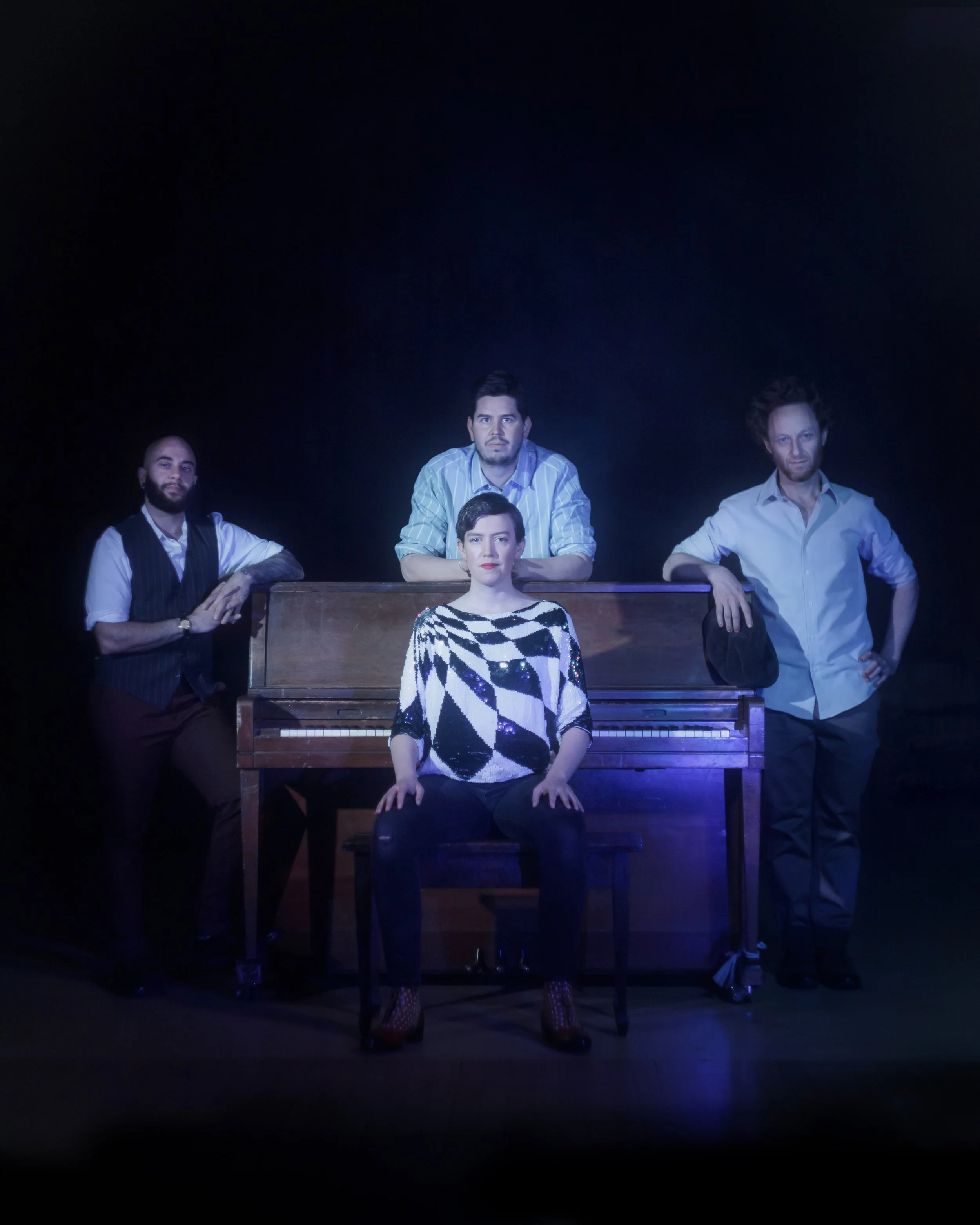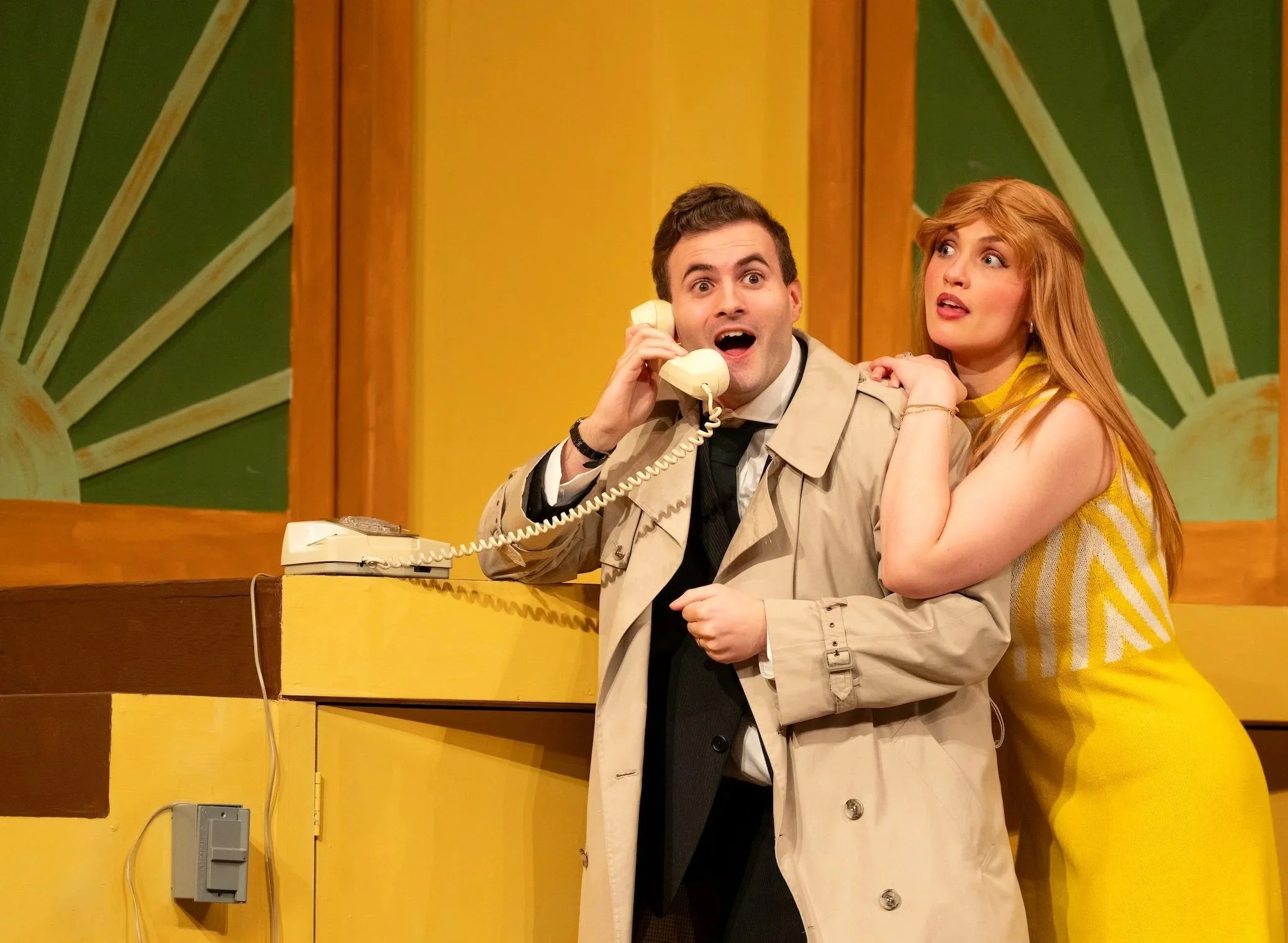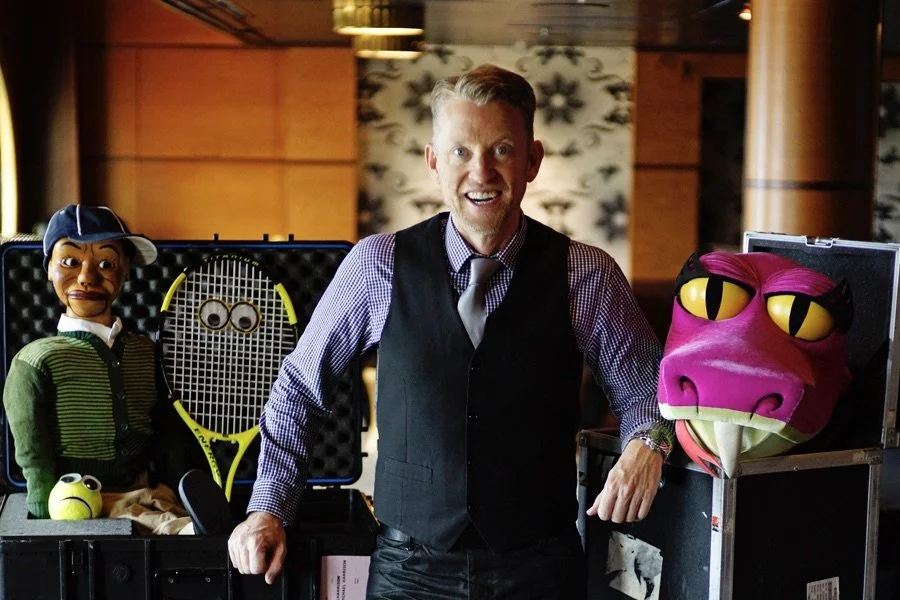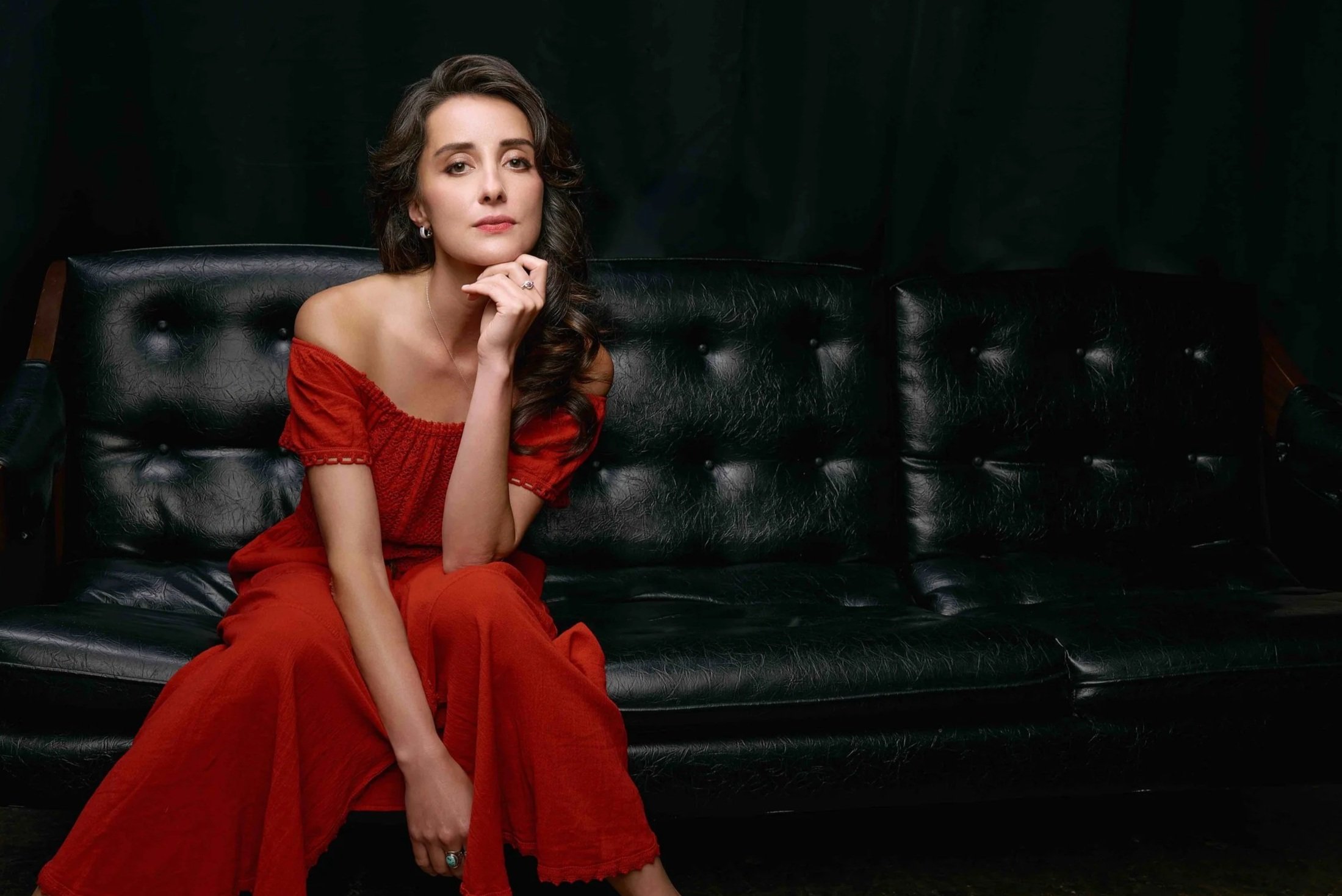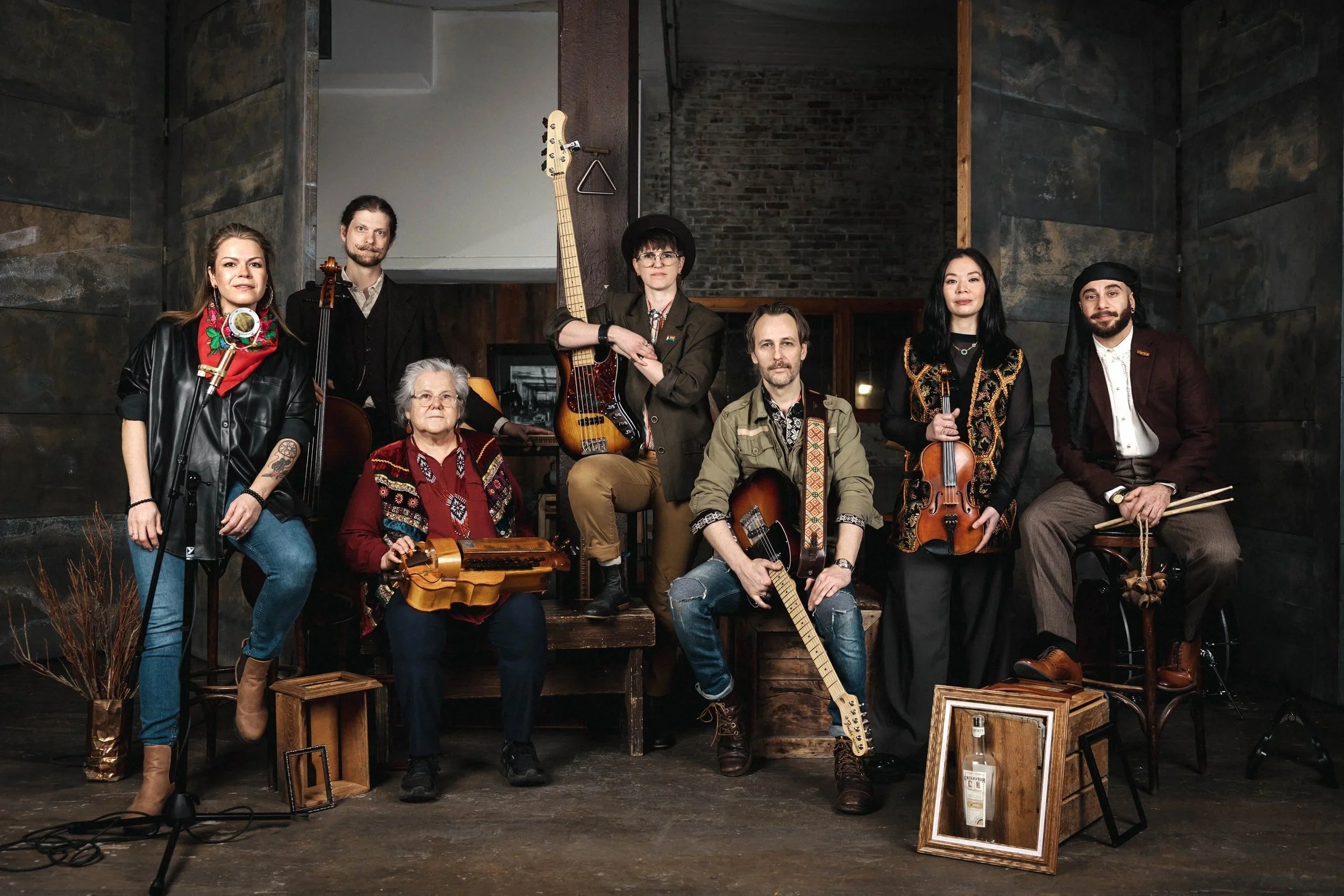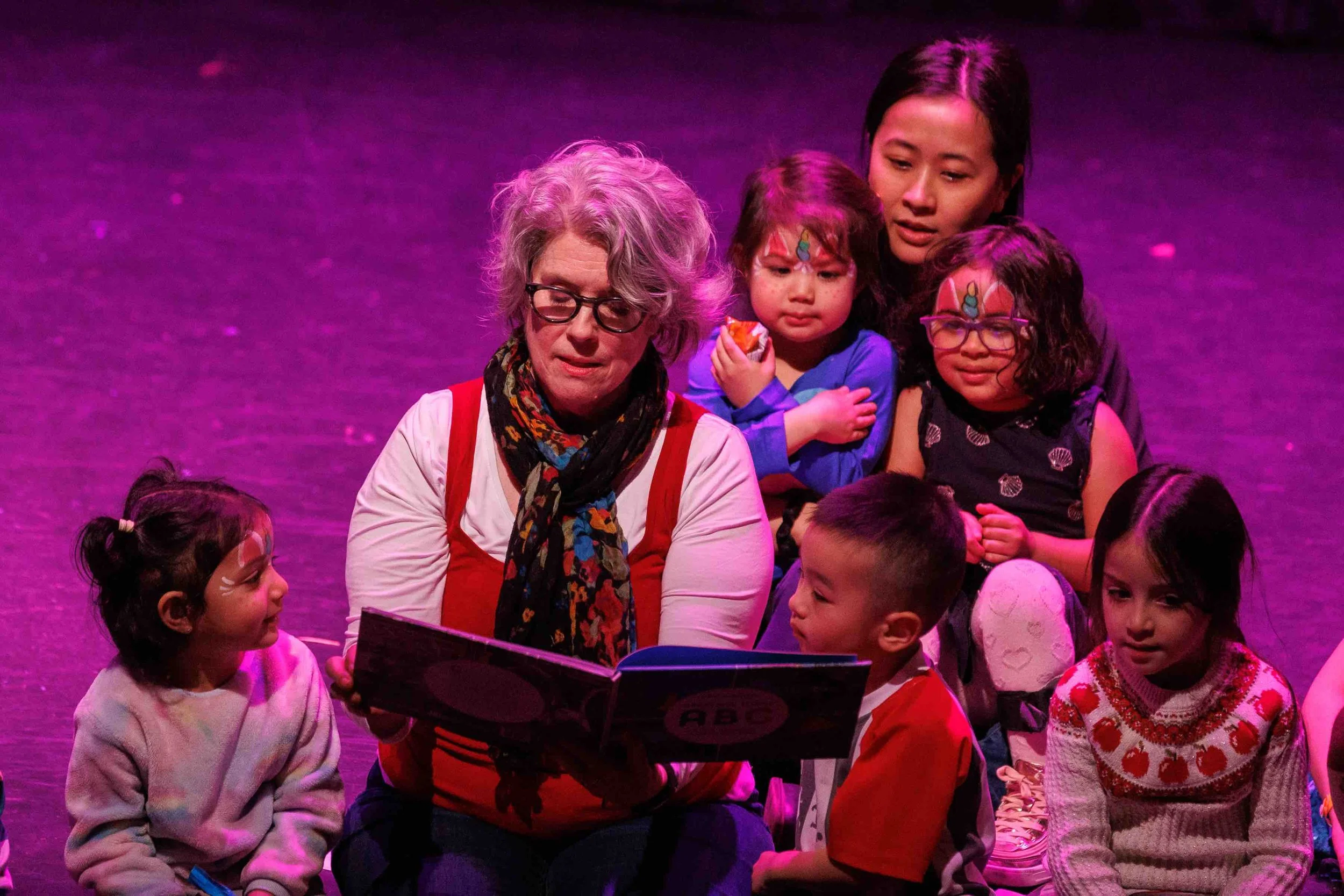Morag, You’re a Long Time Deid features loop pedals and Scottish ballads in a journey of queer discovery
A grandmother co-creator Claire Love Wilson never met inspired the experimental musical
Claire Love Wilson.
Morag, You’re a Long Time Deid, in association with Touchstone Theatre and copresented by the frank theatre company, runs at The Russian Hall from June 9 to 19
PART OF Scottish-Canadian multidisciplinary artist Claire Love Wilson’s training over the years was participating in theatre-maker Diane Roberts’ Arrivals Personal Legacy process—a movement-based experience where people are guided in a discovery of their history and culture through the embodiment of an ancestor. Love Wilson chose to connect with her late grandmother Marion, a woman she never met. The experience proved to be deeply moving on a personal level and pivotal in terms of her art.
“It was pretty profound,” Love Wilson says of the process in an interview with Stir. “There’s a whole charge around my grandmother’s story in my family; my grandmother died by suicide. Her story was very much kept under the hatch, under lock and key, which had to do with trauma reactions to her death. I’ve grown up with a ton of curiosity and never heard much about her, but as a sensitive, creative soul I came up with a magical, imaginative relationship with Marion in my inner world. I used to think she was my guardian angel. Even though I was scared of doing that work, it opened up this big portal in my family.”
The transformative experience also led Wilson to travel to Scotland in 2013 to complete her degree in interdisciplinary studies. She made a point of meeting a whole side of her family that she had never met before to try to piece bits of her grandmother’s life together. By visiting her ancestral homeland, Wilson also learned about Scottish musical traditions and ballads, something her other beloved Glaswegian grandmother, Rita Love—who loved singing—instilled in her early on. All of these aspects began to click together, and they planted the seeds for Morag, You’re a Long Time Deid.
The experimental musical co-created with Austrian director and performance-maker Peter Lorenz is about to have its world premiere in Vancouver as part of Touchstone Theatre’s 45th-anniversary season.
The piece for five performers follows the story of Sam, played by Love Wilson, who inherits her grandmother Morag’s piano. Hidden within it is a cryptic letter from a woman named Jess made up of lyrics of old Scottish ballads. This discovery leads to Sam imagining a secret queer romance, and as she begins transforming her ancestral songs, she discovers her own voice.
Wilson notes that she has fictionalized her grandmother’s life story in Morag, You’re a Long Time Deid.
“The letter insinuates that this woman had Sam’s grandmother’s piano, and she wanted her to have it,” Love Wilson says. “What was their relationship? Sam starts to really run with it in her imagination, and this is where the story departs from what I tangibly know about my grandmother. There’s no clear evidence as to my grandmother’s sexual orientation. When we go into the fictional realm, it’s my curiosity as a queer artist. I’m a queer-identified artist, and as a creator, it was natural to inject it into a story of Sam—queer longing and imagination and wondering. Sam sorting out her own queerness is something she shared with her grandmother.”
Love Wilson says that as she began to uncover her own queer identity, she peered into her familial and Scottish cultural history and felt a void. “In some ways, this show is the act of singing into that void and following the songs into previously unimaginable possibilities,” Love Wilson says.
Morag, You’re a Long Time Deid. Photo by Pedro Augusto Meza
The music in the show uses the kinds of ballads Love Wilson sang with her Nana Rita growing up as a jumping-off point for play and experimentation, notably with loop pedals. The lyrics shift, too, moving away from the ample sexism found within old songs, within which women are often described in disempowering positions. Love Wilson layers in light soundscaping in other ways throughout the piece, weaving renewed ballads together inside Sam’s head.
“The loop pedal is almost like her playmate or her bandmate, and she starts to use the pedal to open up the songs, to make space or texture or set them in new ways, to make them feel different,” Love Wilson says. The music even veers to electronic dance beats, still referencing original ballads but transporting them to a queer club or bar where “everyone is welcome and everyone is welcome to dance”.
As a work in development, Morag was showcased at the National Theatre of Scotland, The Scottish Storytelling Centre, and PushOff in Vancouver. Wilson has been featured as a creator and performer at the Vancouver Fringe Festival, rEvolver festival, and the Shift Festival, among others, in collaboration with companies such as the Only Animal, Urban Ink, and the frank theatre. She has also facilitated workshops on her personal loop-based performance practice, “song-walking”, locally as part of Interplay Festival and Vancouver Outsider Arts Festival, as well as internationally at University of The West of Scotland, the Scottish Storytelling Centre, and BAM in Paris.
Love Wilson draws heavily on the storytelling and musical traditions that her grandmother Rita passed down to the family in Morag (which also stars Steve Charles, Rob Thomson, Sally Zori, and Dennis Joseph). “When she grew up, at family parties in Glasgow, it was common that everyone would have a party song, story, or poem to keep the vibe flowing,” Wilson recalls. “Nana had this expectation of us as grandchildren: we also had to have our party song.”
Also influencing Wilson’s desire to explore her roots was the time she spent taking Indigenous studies at UBC. There, she learned about colonial history and also gleaned much wisdom from Indigenous teachers and theorists about the importance of talking about and knowing our ancestors, being curious about what they went through and who they were, and carrying those people with us today.
While Morag is not a play about reconciliation, Wilson says the work touches on how she grapples with her ancestry, particularly as a white settler living and creating on unceded Indigenous territory. “It’s an important and very fruitful question, understanding where my people come from in order to also contribute in a deeper and more grounded way to reconciliation,” Wilson says. One of the work’s collaborators and performers, Dennis Joseph of the Squamish Nation, is a cultural leader and traditional knowledge keeper. All of the performances open with traditional welcoming protocols.
“The kind of practices around ancestral connection and responsibility and understanding who your people are and how that contributes to who you are is something I see modelled by Indigenous teachers and friends and collaborators,” Wilson says. “That’s something I’ve learned: especially for folks that have settled here, to begin to understand and work with your own history, that contributes to transforming things moving forward.”


